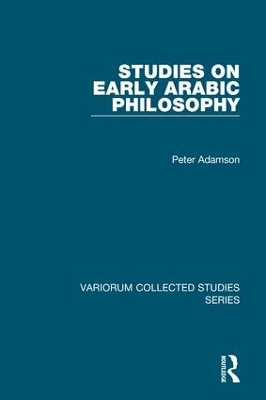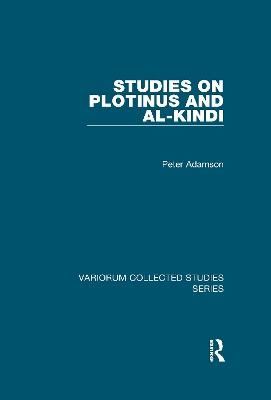Variorum Collected Studies
2 total works
Philosophy in the Islamic world from the 9th to 11th centuries was characterized by an engagement with Greek philosophical works in Arabic translation. This volume collects papers on both the Greek philosophers in their new Arabic guise, and on reactions to the translation movement in the period leading up to Avicenna. In a first section, Adamson provides general studies of the ’formative’ period of philosophy in the Islamic world, discussing the Arabic reception of Aristotle and of his commentators. He also argues that this formative period was characterized not just by the use of Hellenic materials, but also by a productive exchange of ideas between Greek-inspired ’philosophy (falsafa)’ and Islamic theology (kalÄm). A second section considers the underappreciated philosophical impact of Galen, using Arabic sources to understand Galen himself, and exploring the thought of the doctor and philosopher al-RÄzÄ«, who drew on Galen as a chief inspiration. A third section looks at al-FÄrÄbÄ« and the so-called ’Baghdad school’ of the 10th century, examining their reaction to Aristotle’s Metaphysics, his epistemology, and his famous deterministic ’sea battle’ argument. A final group of papers is devoted to Avicenna’s philosophy, which marks the beginning of a new era of philosophy in the Islamic world.
This book collects 15 papers on the greatest philosopher of late antiquity and founder of Neoplatonism, Plotinus (d.270), and the founding figure of philosophy in the Islamic world: al-KindÄ« (d. ca. 873). A number of the contributions focus on the text that joins the two: the so-called Theology of Aristotle, in fact an Arabic version of Plotinus’ Enneads produced in al- KindÄ«’s translation circle. Across several papers, Adamson argues that this translation is best understood as a reinterpretation of Plotinus designed to appeal to contemporary readers in the culture of the ’AbbÄsid era. Two contributions also analyze the notes on the Theology written by the great Avicenna. Other papers look at aspects of al-KindÄ«’s own thought, exploring his ideas concerning metaphysics, free will astrology, and optics. The traditions of Plotinus and al-KindÄ« are also treated, with papers on Plotinus’ student Porphyry and his Arabic reception, and on followers of al-KindÄ«. Adamson argues that we can identify what he calls a 'Kindian tradition' in the 9th-10th centuries. He discusses the philosophical presuppositions of this movement, and the use of al-KindÄ«’s ideas made by one particular representative of the Kindian tradition, the Persian thinker Miskawayh.

